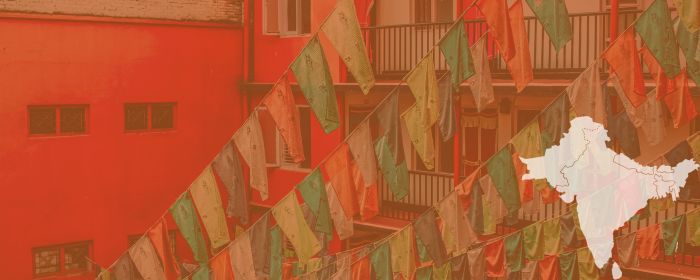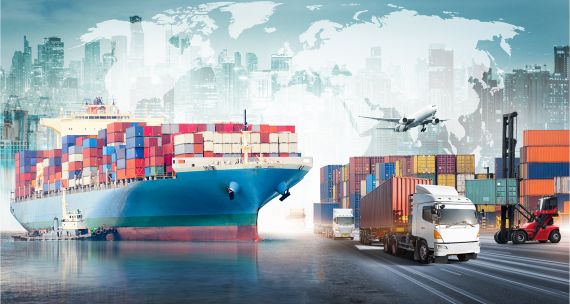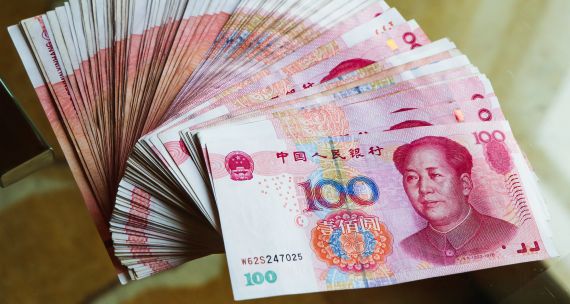The Takeaway
A recent complaint against Canadian Tire has once again highlighted the poverty-level wages paid to workers at Bangladeshi textiles and ready-made garments (RMG) supplier companies hired by Canadian companies. The issue underscores the power imbalance between the companies and the suppliers — made worse by the lax standards companies apply when dealing with the suppliers. As Canada positions itself as a country promoting responsible business conduct abroad, it is imperative to hold Canadian companies accountable.
In Brief
On November 22, two North American trade unions accused Canadian clothing and footwear retailer Mark's and its parent company, Canadian Tire, of contravening international human rights standards by failing to ensure a living wage for garment workers in their supplier factories in Bangladesh. The two unions filed a complaint with the Canadian Ombudsperson for Responsible Enterprise (CORE), seeking a probe into what they labelled a “human rights abuse.”
Implications
Textiles and apparel dominate Bangladesh’s trade ties with Canada, constituting over 90 per cent of the country’s product exports to Canada. Major Canadian brands such as Hudson’s Bay, Mark’s, and lululemon source many of their products from Bangladeshi suppliers. Yet a darker side of this lucrative relationship remains overlooked. Research shows that since the Rana Plaza disaster in 2013 – which left 1,132 dead – there was a 13 per cent decline in the amount of money paid by companies to supplier factories. As a result, the Bangladeshi suppliers operate at thin margins and pay poverty-level wages to their roughly four million workers. And despite a 2019 revision to the minimum monthly wage, from C$74 (5,300 Bangladeshi takas) to C$145 (11,165 Bangladeshi takas), several studies indicate that this amount falls well short of a living wage. A living wage is generally defined as the money a person needs to cover their costs of living, and varies by location and community. The living wage for a worker in a Bangladeshi city, according to a benchmark mentioned in the complaint, should be at least in the monthly range of C$288-449 (21,966 to 34,236 Bangladeshi takas).
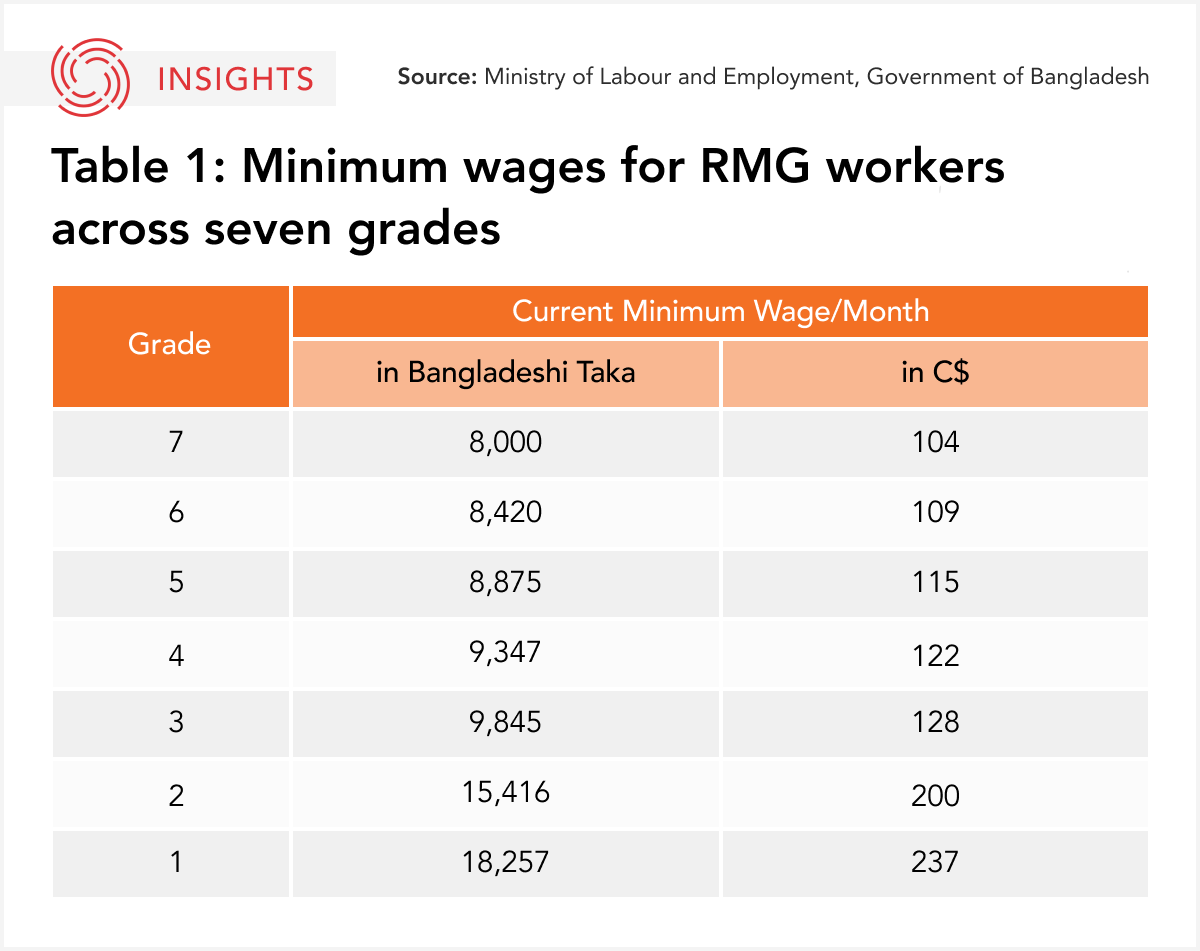
Workers in these supplier factories do not have the right to unionize. The Global Rights Index, prepared by International Trade Union Confederation (ITUC), the world’s largest trade union federation, lists Bangladesh among the top 10 worst countries for workers. The index mentions that workers in Bangladesh suffer from regressive laws, and that they face numerous obstacles in forming a union. The index also notes that strikes by workers are typically brutally suppressed. It quotes the country’s Export Processing Zones Labour Act (ELA) 2019, which states that workers in export processing zones cannot unionize or organize protests. The research report “Not Even the Bare Minimum” by United Steelworkers Humanity Fund, a charitable organization advocating for workers’ rights worldwide, states that none of the Bangladeshi supplier companies for Canadian companies have unions to protect workers’ rights. Meanwhile, Bangladesh’s lower minimum wages in the RMG sector, compared to competitors like China, Vietnam, and Cambodia, continue to attract price-sensitive foreign buyers.
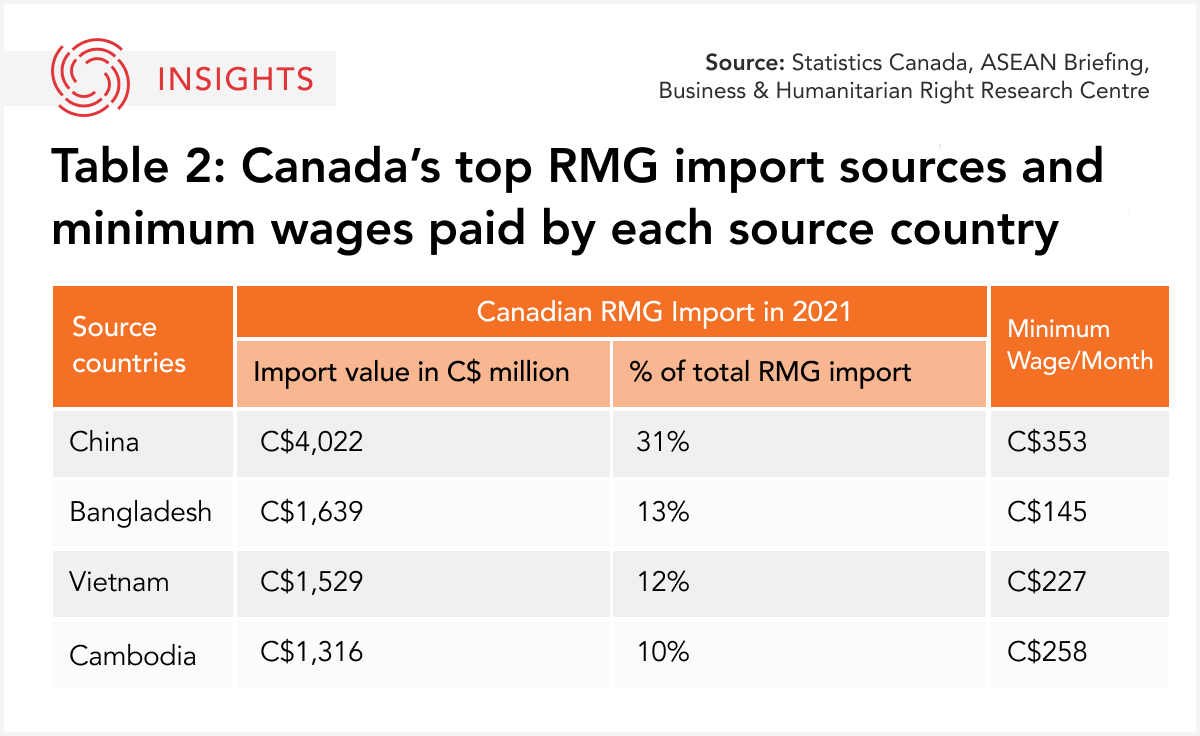
What’s next
- Interventions since the Rana Plaza disaster
After the tragic Rana Plaza disaster, the Accord on Fire and Building Safety in Bangladesh was established in 2013. This was replaced by the Transition Accord in 2020, which had some stipulations on building safety. However, better building and worker safety standards have not coincided with higher wages. Both businesses and governments have obligations under the International Labour Organization's Resolution Concerning Decent Work in Global Supply Chains to adopt and implement measures to “improve working conditions for all workers,” including wages, and to comply with all applicable laws and respect human rights. - Canada’s commitment to inclusive growth
As Canada continues to promote its progressive trade agenda (PTA), including compliance with higher labour standards in trade, Canadian companies like Mark’s accused of exploitative labour practices in developing economies may be subject to greater scrutiny at home. In addition, the newly released Indo-Pacific Strategy, reiterating Canada’s inclusive and progressive values, commits to providing technical assistance to regional trading partners to protect workers’ rights across supply chains. In light of these measures, Canadian regulators need to hold homegrown companies accountable and ensure that workers directly or indirectly involved in their operations can live a life of dignity.
• Produced by CAST’s South Asia team: Dr. Sreyoshi Dey (Program Manager); Prerana Das (Analyst); Narayanan (Hari) Gopalan Lakshmi (Analyst); and Silvia Rozario (Analyst).
